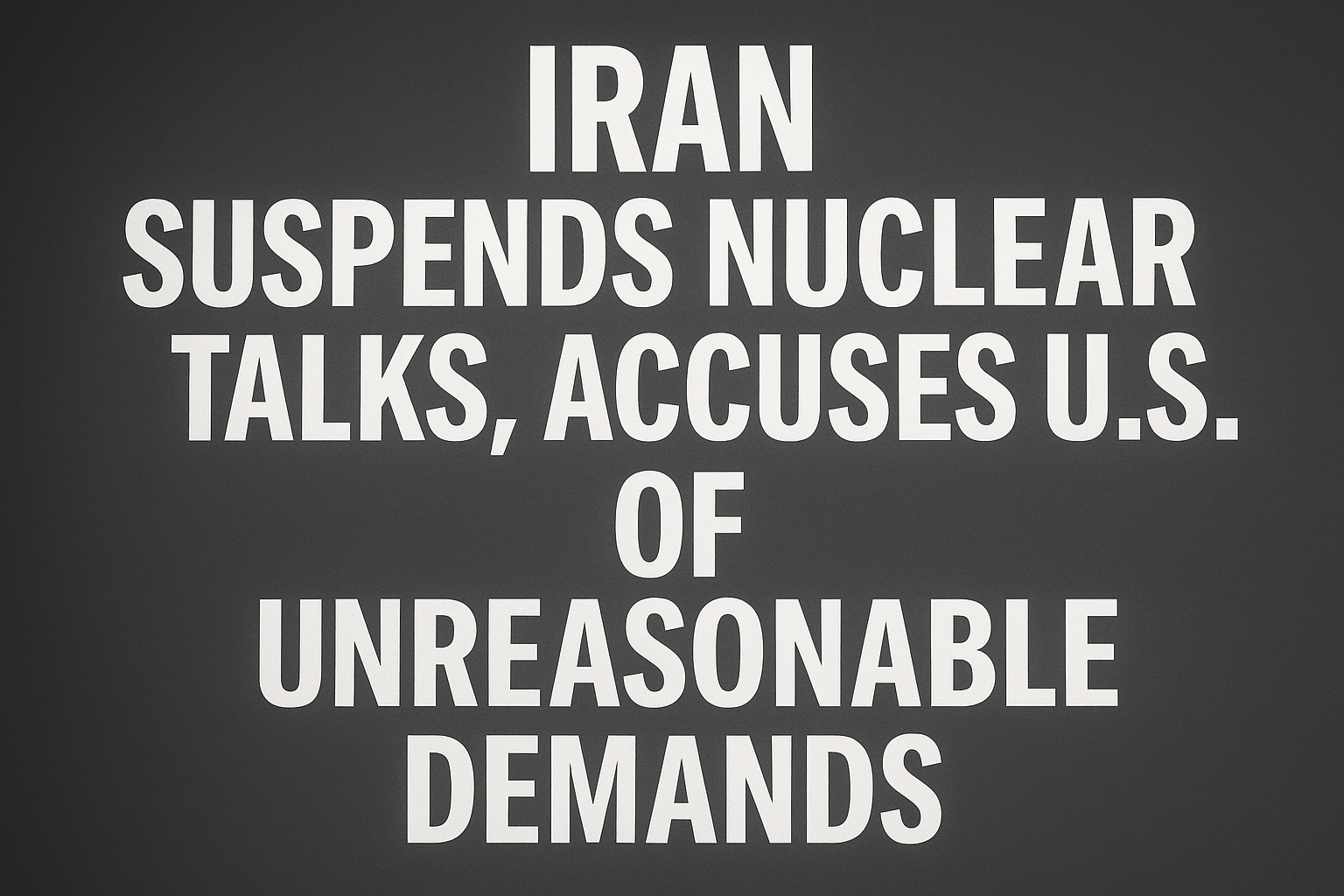Tensions between Iran and the United States have escalated once again, as Tehran has formally declared that it will not return to the negotiating table unless Washington changes its approach. Iranian officials say talks have stalled due to what they describe as “unreasonable demands” from the U.S., further dimming hopes for a revival of the 2015 nuclear deal.
The announcement, made by Iranian Foreign Minister Abbas Araqchi, comes amid months of silence and uncertainty following a wave of diplomatic efforts earlier this year. Araqchi was quoted by Iran’s semi-official *Tasnim News Agency*, stating that ongoing negotiations with the U.S., including meetings planned during the United Nations General Assembly in New York, were suspended after the American side insisted on conditions Tehran deemed excessive.
“Talks that were ongoing with the U.S., as well as those in New York, were suspended and did not go forward because of excessive U.S. demands,” Araqchi said.
Background: A Fragile Diplomatic Process
Iran and the United States had previously engaged in five rounds of indirect talks aimed at reviving the Joint Comprehensive Plan of Action (JCPOA), the 2015 nuclear agreement that placed limits on Iran’s nuclear program in exchange for sanctions relief. Those talks appeared to be making some headway—until a significant military escalation in June.
A 12-day air campaign led by Israeli and U.S. forces targeted several Iranian nuclear facilities, dramatically altering the diplomatic landscape. While neither country publicly confirmed the full extent of the strikes, the move was widely interpreted as a warning against Iran’s expanding nuclear activity.
Since then, efforts to restart the talks have been inconsistent. According to reports, Iran has sent several messages to the U.S. via regional and European intermediaries, offering to resume negotiations. However, no formal response has been received from Washington.
Missed Meeting in New York
Adding to the stalemate, Iran’s government spokesperson Fatemeh Mohajerani said that U.S. officials did not attend a meeting Iran had proposed on the sidelines of the UN General Assembly in early October. That missed opportunity further complicated the already delicate diplomatic climate.
Backchannel Communications Continue
Despite the impasse, Iranian officials say they are still engaged in indirect communication with the U.S. through mediators. Araqchi confirmed that messages had been exchanged with Steve Witkoff, the U.S. Special Envoy to the Middle East, though no breakthrough has been reported.
Araqchi reiterated Iran’s position: it remains committed to diplomacy and is willing to resolve disputes through peaceful means—but not at any cost.
International Concerns Persist
The breakdown in talks has raised alarm among Western governments, particularly as Iran continues to expand its nuclear program. The United States, European Union, and Israel have long suspected that Iran’s civilian nuclear activities are a cover for developing nuclear weapons—a claim Iran strongly denies.
Tehran maintains that its nuclear program is purely for peaceful purposes, including medical research and power generation. Still, the International Atomic Energy Agency (IAEA) has reported increasing enrichment activity and reduced access to key facilities, deepening international concerns.
What’s Next?
With both sides sticking to hardline positions, the prospect of a renewed agreement in the near future seems unlikely. The breakdown comes at a time when the Middle East is already under significant strain from ongoing regional conflicts, sanctions, and political realignments.
Analysts suggest that unless a trusted third party can reestablish meaningful dialogue, the situation may drift toward greater instability. For now, Iran’s stance is clear: unless the U.S. changes its demands, there will be no return to the negotiating table.
—
Source: This article is based on publicly available reporting and official statements, including a report by [Reuters] and Iran’s Tasnim News Agency.
—
